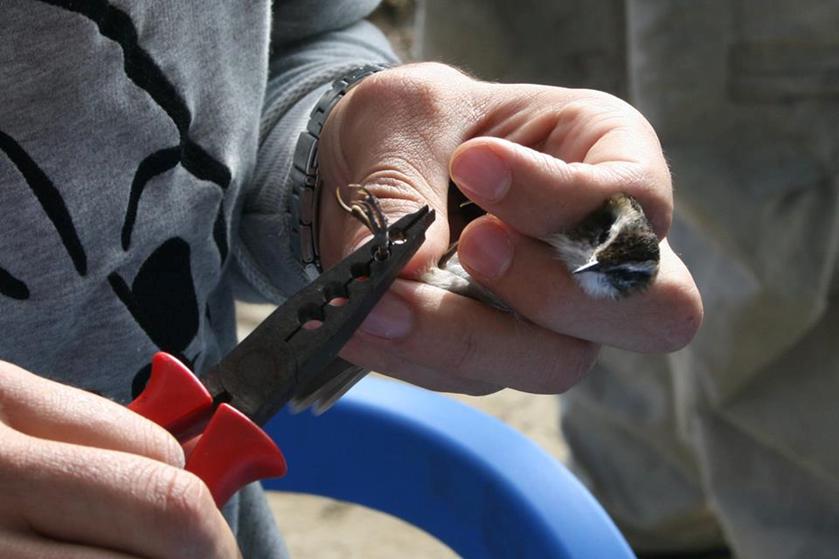Péter Villányi
The project aims to conduct a baseline study for reedbeds in Albania and understand their role in the biological cycle of birds, especially of the Moustached Warbler. The project focuses on faunistic observations and systematic bird banding involving local resources (AOS) to develop a long-term monitoring program for reedbeds in Albania.

Marking of a Moustached warbler.
The aim of our work is to gain baseline information on the number and state of reed beds of significant size in Albania, and to assess the potential and present threats to these habitats. We are planning a 2 week preliminary regular research between 25 of April until 6 of May about the condition of the reedbed areas of Albania through bird monitoring, bothanical sampling, reptile/amphibian monitoring and habitat exploration. Our next research is going to happen in October. We are planning a 5-week banding camp during the autumn migration that aims to clear the region’s role in songbird migration with a special focus on the Moustached Warbler. We assume that the Albanian reed beds are on the main route the population wintering in Greece uses. It is crucial to prove this assumption for the protection of the species on the long run. We closely co-operate with the Albanian Ornithological Society, a non-governmental organisation based in Albania, which helps us exchange professional experiences and promote bird banding as an important monitoring method for conservation. The bird banding camp will be visited regularly also by Albanian students and youngsters with the aim to promote birdwatching and bird conservation in Albania.
One of our long-term goals is to start a systematic bird banding monitoring programme in Albania. Banding is rarely done in Albania due to the lack of volunteers. Considering that Albania lies on an important migratory route, we believe that the popularization of banding could likely result in generating important data, and contributing to the road map of European bird migration. Besides conservation and scientific reasons, bird banding can be used for environmental education as well. Songbird shooting is a widespread tradition in the Balkan countries, and it can not be tackled solely with bans and sanctions. On the long run, only environmental education can guarantee the safety of songbirds in this region. Bird banding camps give young people personal experiences with birds, which can help changing their views on shooting. This way, besides gaining scientifically important data, the program would contribute to the widespread acceptance and understanding of the activities of conservation institutions, and the popularization of bird conservation.